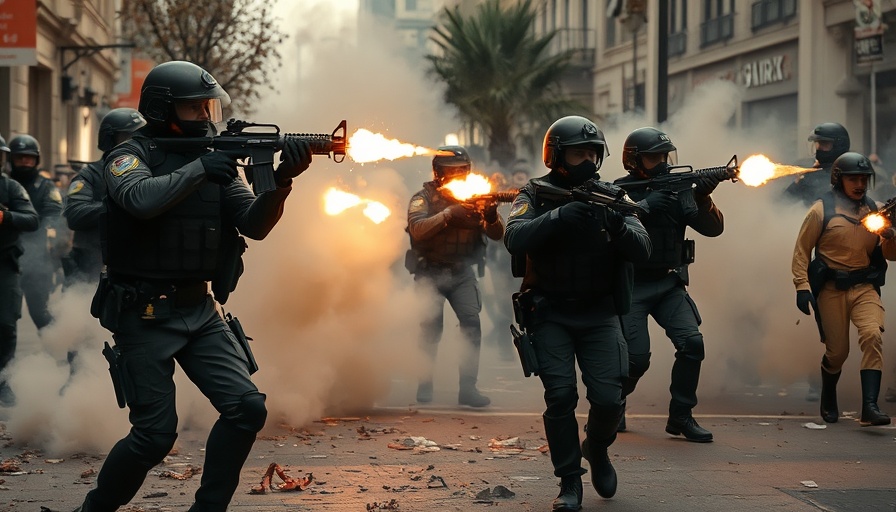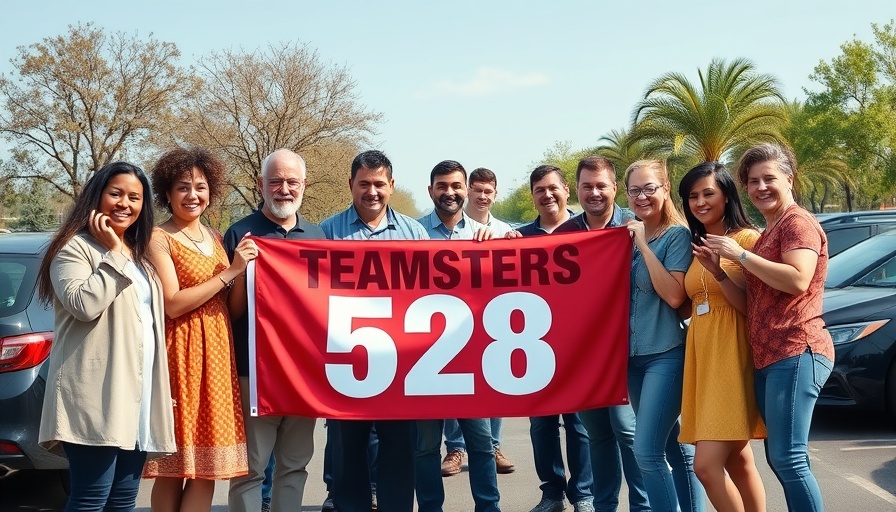
Marines Deployed Amid Growing Tensions in Los Angeles
The deployment of around 700 Marines to Los Angeles represents a controversial response to ongoing ICE protests throughout the city. As protests erupted, largely in response to government immigration policies, the military presence has raised questions about the appropriateness of military involvement in civilian affairs.
The Background: Why Protests Are Happening Now
The protests began in early June, driven by frustration over a series of immigration enforcement actions targeting undocumented individuals in the area. Demonstrators are asserting their rights to protest peacefully against what they perceive as unjust actions by ICE (Immigration and Customs Enforcement), while the government claims these protests have escalated into violence against federal personnel and property. Protests, especially in cities with diverse populations, highlight the community's growing frustration with immigration policy.
Military Presence: A Trigger for Debate
The arrival of troops has split public opinion and garnered responses from various leaders. Mayor Andrew Ginther, president of the U.S. Conference of Mayors, denounced the deployment, emphasizing that local law enforcement should manage protests without military intervention. "Law enforcement is a local responsibility" he said, arguing that national troops should not create division within communities already under stress from racial and social tensions.
California's Response: Legal Challenges on the Horizon
Governor Gavin Newsom is staunchly opposed to this military involvement and has announced intentions to sue the federal government. He articulated his perspective that the Marines should not be made tools for political agendas, emphasizing their critical role in defending democracy and stability internationally, rather than being involved in domestic civil unrest. This legal action exemplifies the ongoing friction between state and federal authorities over governance issues.
The Local Perspective: Concerns of Law Enforcement
Los Angeles Police Chief Jim McDowell indicated concerns surrounding the logistics of federal troops assisting in local matters. He pointed out the potential complications that arise when trying to coordinate federal forces who may not be trained for these specific situations. The Chief's statement reflects a broader concern among local leaders on how effectively the collaboration would operate in practice when the federal military is thrust into urban social dynamics.
Historical Context: A Pattern of Military Involvement
This isn't the first time that military troops have been deployed in response to domestic unrest. Historically, military involvement in civil matters has ignited fierce criticism and debate about the limits of government power. Instances such as the National Guard's deployment in 1968 during civil rights protests provide a critical lens through which to view current developments, reminding us that civilian safety and rights must be paramount considerations during decision-making processes.
Looking Forward: Potential Outcomes of Military Engagement
Looking ahead, several possible outcomes could arise from the Marines' deployment. There is an undeniable risk that military presence could escalate tensions rather than calm protests. Conversely, if handled effectively, there may be opportunities for establishing better crowd control protocols and de-escalation techniques, drawing lessons from similar situations in history. The immediate challenge will be balancing security interests with the citizens’ right to protest.
Community Conversations: The Importance of Dialogue
The ongoing situation necessitates open conversations between community members, government officials, and law enforcement. A collaborative approach to resolving community concerns about ICE and immigration policy could lead to more profound policy changes. Effective communication can strengthen community ties, helping to foster mutual understanding and trust.
The ongoing developments in Los Angeles around the deployment of Marines to respond to protests hint at the complexities involved in managing civil unrest in a democratic society. As the situation evolves, it remains essential to prioritize the voices of community members who are directly affected by these policies.
 Add Row
Add Row  Add
Add 




 Add Row
Add Row  Add
Add 

Write A Comment